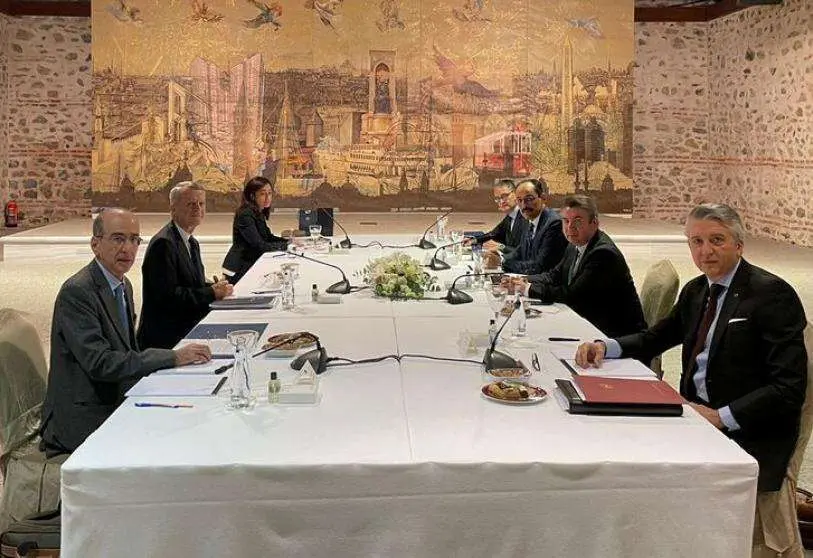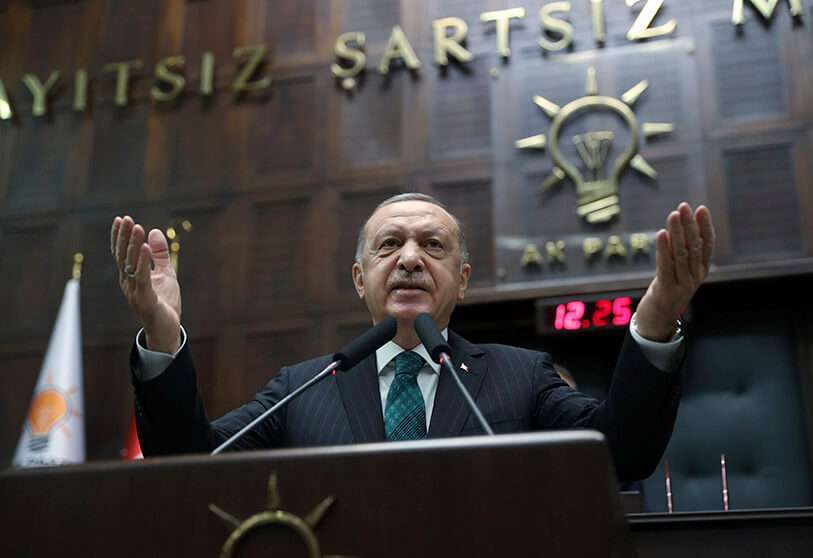New round of exploratory talks between Greece and Turkey conclude

The governments of Greece and Turkey have held new talks to discuss hydrocarbon exploration in the Mediterranean area, which has been the subject of much controversy for some time. The meeting, arranged just days before the EU summit scheduled for the end of this month, aims to ease tensions and bring closer together two countries that have long been at loggerheads in their quest for hegemony in the Eastern Mediterranean.
The Greek delegation was led by Ambassador Pavlos Apostolidis and the Turkish delegation by Sedat Önal, deputy foreign minister. According to Greek media sources ERT, the talks were concluded after four hours of negotiations, which, they say, do not yet appear to be close to a mutually beneficial agreement. As a result, they are expected to resume contact in what would be a new meeting in the Turkish city of Istanbul. However, a meeting took place today between Greek and Turkish officials outside the exploratory framework, which may have brought the Greeks and Ankara closer together in terms of diplomatic understanding.

Earlier this year, the first contacts between the two countries took place in Constantinople on 25 January. From that moment on, Greece wanted to make it clear that they would limit their discussions to the demarcation of exclusive economic zones and the continental shelf in the Aegean Sea and the Eastern Mediterranean, ruling out at all times issues of "national sovereignty". Despite this, Greek sources suggested that Recep Tayyip Erdogan's side intended to extend the dialogue agenda, something that was rejected by Greece. It should be recalled that all these talks are taking place in a framework of "informality" and are not binding on either side.
Athens argues that the decision to extend its territorial waters is a sovereign right and that it has the capacity to do so at any time up to 12 nautical miles. Turkey's foreign minister, Nikos Dendias, spoke of talks with Turkey while avoiding discussing the extension of the Greek territorial sea: "We hope that they will find common ground to resolve the only bilateral dispute we have with Turkey, namely the delimitation of the exclusive economic zone (EEZ) and continental shelf in the Aegean and Eastern Mediterranean, on the basis of the UN Convention on the Law of the Sea and the principles of international law".

Ankara's violations of both Greek air and maritime space since the first meeting in January have made this second round of talks a very different atmosphere from the previous one. Issues such as the energy issue surrounding Israel, Cyprus and Greece itself, which has just signed an agreement to link electricity grids via an undersea cable, have been discussed. It will cost 755 million euros and will have a power output of 2,000 megawatts and a depth of up to 2,700 metres. According to Turkey, this cable, which is part of the "Euro-Asia Interconnector" project, passes through its continental shelf, adding even more controversy to the already tense situation they have been going through for years.
Amidst all the controversy that still exists between the two countries, the upcoming EU summit seems essential to bring them closer together. Ankara's recent actions will be scrutinised by the EU and will determine to what extent Turkey's latest moves are damaging Katerina Sakellaropoulou's government.








